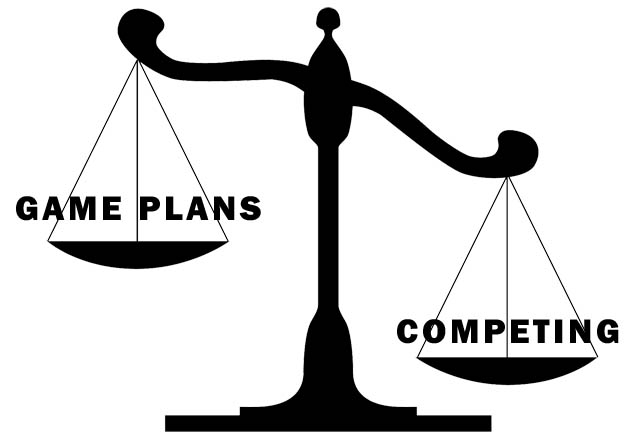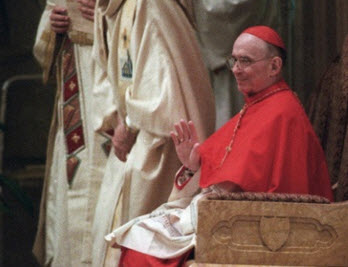Cardinal Joseph Bernardin, in his outstanding book, The Gift of Peace, wrote, “The things people are naturally attracted to and remember most are small acts of concern and thoughtfulness. Years later, that is what they tell you about their priests and other clergy.”
 Saint Theresa, the Little Flower, wrote in Story of a Soul, “A word, an amiable smile, often suffice to make a sad soul bloom.”
Saint Theresa, the Little Flower, wrote in Story of a Soul, “A word, an amiable smile, often suffice to make a sad soul bloom.”
Poet Maya Angelau summed it up when she wrote, ”I’ve learned that people forget what you said, people will forget what you did, but people will never forget how you made them feel.”
Father John Welch, a Carmelite priest, wrote about a man who received hospitality from others at a critical time in his life. The man said, “Always show more kindness than seems necessary because the person receiving it needs it more than you will ever know.”
The above quotes were referenced in an article written by Father John Welch titled, “Small Acts of Kindness” in the March edition of the Diocese of Joliet magazine, Christ is Our Hope.
I think these small acts of kindness are something leaders may want to reflect on. Leaders carry the title of their profession with them everywhere they go. Often they are respected because of that title and the position they hold in their community. Therefore, people tend to remember their acts of kindness more than others due to their exalted position.
For the most part I really think people in athletics understand that athletics has brought them fame and when they are kind to people, that kindness can be remembered for years. We had a program called Brown & Gold Night at the University of St. Francis where we brought in a celebrity from the world of sport for a fundraising dinner. Our celebrities did not get any bigger that Hall of Famers’ Mike Ditka and John Wooden. Both of them could not have been more gracious to the hundreds of people who were in attendance. They showed no arrogance, no ego, no “I’m better than you because I’m a Hall of Famer.” Instead, they exhibited an attitude that they were genuinely grateful to meet our people and both stayed until every autograph was signed. To this day our people remember their graciousness and kindness.
When Maya Angelou wrote that people remember how you made them feel, it made me think of my mentor and coach, Gordie Gillespie, who did this better than anyone I have ever known. There could be 600 people in a room, but if he was talking to you, he made you feel like you were the only person in that room.
Our St. Francis basketball players demonstrated at Chicago clinics for some of the top coaches in the country, coaches like Bob Knight, Dean Smith, and Greg Popovich. Were you to ask our players what they remembered most about these men, I know they’d say how kind these coaches were to them. When our players were demonstrating for Coach Knight, they misunderstood his teaching on his very first drill and performed it poorly, so poorly that a good number of the 800 coaches in attendance laughed at them. Knight immediately stopped the clinic and told the coaches if he heard any more laughing from them, he’d bring ten of them out of the stands and have them demonstrate! Our players have never forgotten Coach Knight’s kindness to them.
Most leaders are in positions where they are able to do small or sometimes even big acts of kindness.
Not a bad way to be remembered.

 ESPN did an insightful commentary on the retirement of Derek Jeter.
ESPN did an insightful commentary on the retirement of Derek Jeter.





